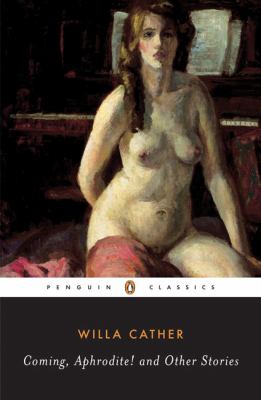
MY WRITING TO JOHN MAYER 2010 TO THE PRESENT AND HOW IT BECAME AS LA DIVINA COMMEDIA WITH A TOUR OF HELL
by SHILOH RICHTER
10 FEBRUARY 2023
THE FEMALE HERMES IN BREAKFAST AT TIFFANY’S Audrey Hepburn, Katy Perry, and the Fraud of Truman Capote

Katy Perry was born on 25 October 1984 just two months after the passing of Truman Capote on 25 August 1984. But there is something specific about Truman’s passing that made Katy’s birth all the more of providence. There is a reckoning in Katy’s personhood and her career, her expression, that has been coming ever since.
She was born to it.
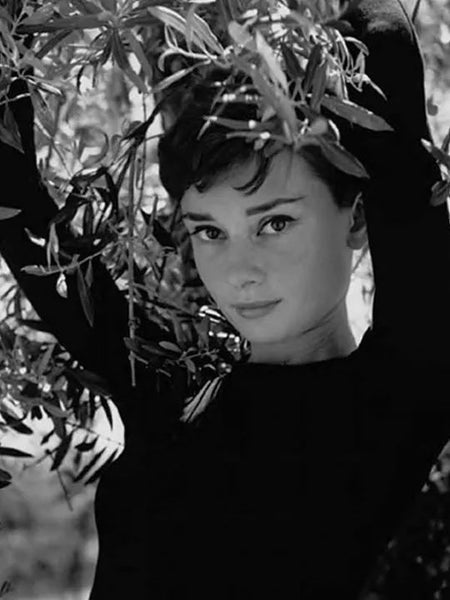

On the day before Truman passed he penned a draft of a ‘true’ story he had tried to tell publicly several times. It was the last thing he ever wrote. The problem with it is it is a lie. Truman died trying to pass off a life of deceit up into his very last moments by trying to leave a note to cover his crimes of all of his work, but specifically of his most valuable work and one of the world’s most beloved movies: Breakfast at Tiffany’s. And what is more and more important, the fact of this doesn’t ruin the movie; it in fact, becomes far more iconic when one sees what was happening behind the scenes. Audrey Hepburn was not a pawn of the Golden Age, but its most private valuable player. The anecdote of a young Audrey carrying notes in her shoes to get messages past German soldiers during WWII was not happenstance. It was a girl who was determined to make the world a better place by her very own spirit, not only with massive courage for a child and the childlike quality she would never lose, but also of the sprite of what she could offer of her brilliance and smile in such a way that good just had to win.
And this is that moment.
In November 2006 Vanity Fair published an article entitled “Willa, Truman. Truman, Willa” under the auspices that the handwritten manuscript of Capote’s last work was going to auction that month.
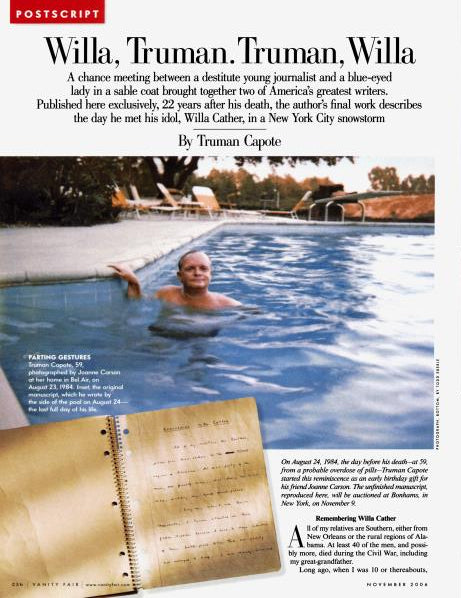
The headline reads as thus: “A chance meeting between a destitute young journalist and a blue-eyed lady in a sable coat brought together two of America's greatest writers. Published here exclusively, 22 years after his death, the author's final work describes the day he met his idol, Willa Cather, in a New York City snowstorm.” His writing includes the line: “There was no living person I would rather have met.” It didn’t happen. Truman didn’t meet Willa Cather. Yes, Truman had been in New York City where Willa lived and while Willa was still alive, and she was known to go to many places like the library in NYC and hold parties. She passed in April 1947. Works of his that are very similar to hers, for example his “A Christmas Memory,” published in 1956, two years before his Breakfast at Tiffany’s novella in 1958, is very similar to her “Old Mrs. Harris” and being homeless/orphaned in her “The Burglar's Christmas.” How do we know it didn’t happen? As one looks closer, the very reason that Truman is telling this lie emerges: he’s trying to make it look like he admired Willa, that the elements of Breakfast at Tiffany’s happened to him and inspired him with Willa, and that they were friends so that when the plagiarism and fraud was finally detected as he surmised it would be, as it had been in his lifetime with no one saying anything directly, he would have another lie in place after his death. He died knowing he was a fraud, but also lying on his way out and lying about one of the greatest writers ever and against a female writer that is destined to change America because of what she was actually writing–and she knew it. That is what lured Truman to her.
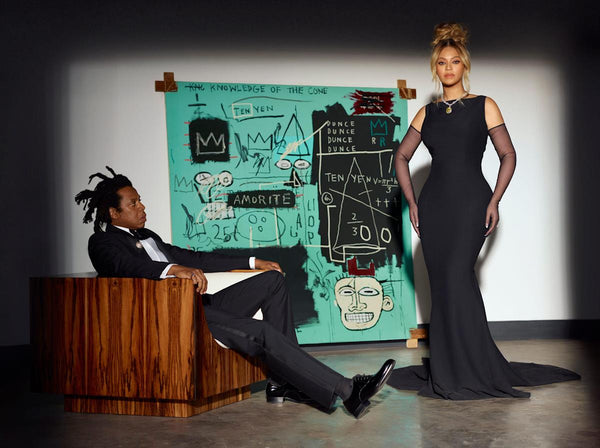
It’s a bit too much here to write about how this relates to what I’ve been writing about, how my writing to John Mayer became like the Divine Comedy, so I’ll just make a simple note here with more to be told later of how the very bottom of Dante’s Inferno is that of Fraud, and not just Fraud, but the very worst, Fraud with Betrayal. This is what Truman Capote was doing to Willa Cather, waiting until she had passed and then performing necromancy with her words and taking credit. Virgil’s guiding Dante through Hell is also phenomenally showing this, how Virgil’s Poetry was used without his will, also just after he had passed (the details of which are very much another story). And of what happened to John, of Taylor Swift telling People Magazine in 2008 how much she respected John while stealing his words and forcing a dubious entrance into his life in which to not only take credit for his life and words, but also brutally betray his kindness and openness for her own power and fame, and to further, keep the lies running for over a decade.
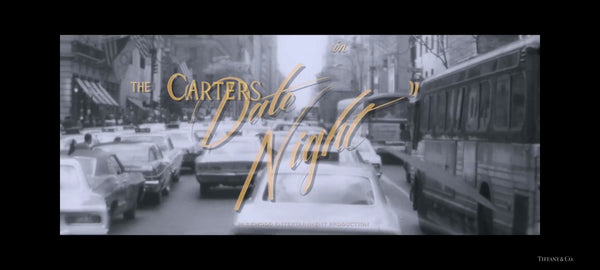

Dinner at Tiffany's: The Carter's have pizza and champagne.
But Katy Perry was there, too. And Beyoncé and Jay-Z. And Tiffany’s. Taylor’s walking over to Harry Styles at the visible public opportunity, what clear to her would be reported at the 2023 Grammys to keep up the charade that there had been boyfriends is as Truman saying he met Willa on a street in NYC and had been in the library with her, walked down the street with her, and was invited to a party at her townhouse–to cover the stolen details of Breakfast at Tiffany’s by saying that Willa’s writing had happened to him with her, and then the instances of plagiarism might be considered ‘enamoured with,’ a homage.
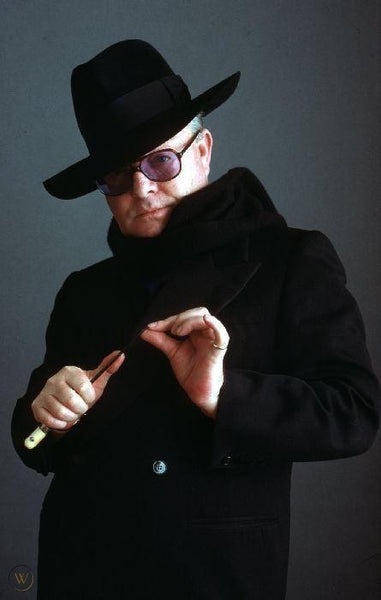
To see how deep this fraud goes into the Inferno, in the early years that I was writing John I wrote to him about the screenplays that I had written, one which was entitled Dinner at Tiffany’s. Taylor, reading what I had written on-line, started replicating Audrey for the [Mean Reds] Red “era”--one of the “characters” from my writing from which she would assume each “era.” So, in any way to call that love, respect, or admiration is humiliation to the very words.
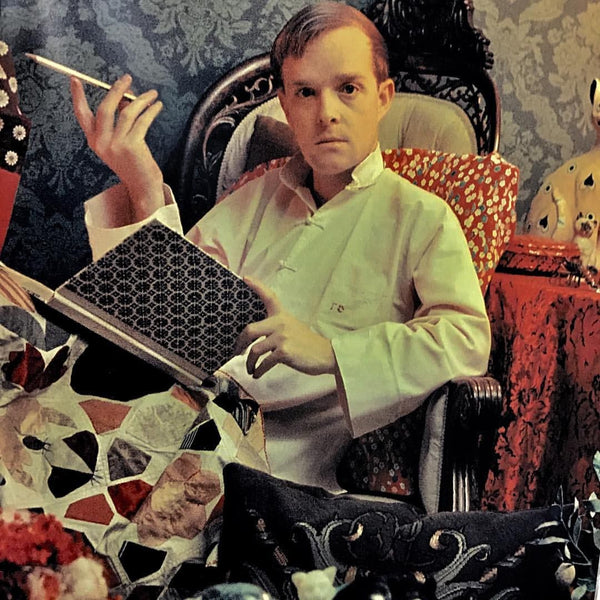
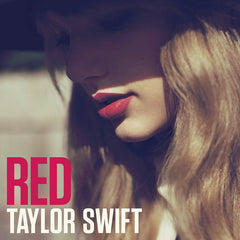
Taylor like Truman, Truman like Taylor, when the heat was on from Hermae like Beyoncé, shifted from “sexy innocence” to take on the villain role as if a way to hang on to the fame by way of claiming the crimes as in Reputation (taken from my writing about false “repetition” in the Homeric epics, repeated untruths, like gossip, of the Sirens of things they heard in the past, and trying to hold Odysseus to the past vs. the truths of ‘repeated’ Poetry). Truman went so far as to infiltrate a small town to be intimately involved with brutal murders after which Harper Lee, who had known him all his life, called him an "habitual liar."
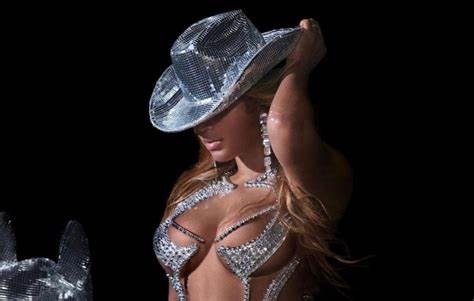
Taylor re-released the crimes, including going after John again, fully knowing that the fraud was being exposed. Truman loved to pose as the “writer,” like Taylor, and he also wanted to lay claim to people in ownership and identity as she does, as when he is credited with calling vibrant New York society women his ‘Swans,” (that, too, is plagiarized from Willa, from her “Flavia and Her Artists”) and had the incessant desire to take down the best and the most beautiful like Babe Paley who trusted him.
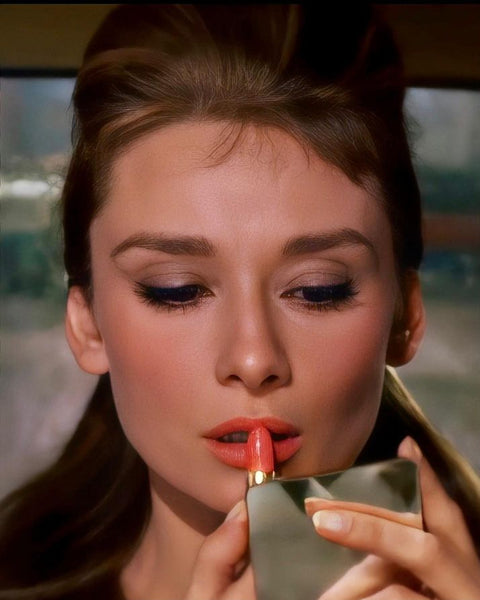
As he is described in the documentary The Capote Tapes, like Taylor, he presented himself with “a strange combination of manipulative and used by the world.” It is also described how he had to write a letter as a child to say that “all the lies I have been spreading about Thomas Flanagan are untrue,” that he was “known as someone who made things up” and “known as someone who could switch identities and wanted to do so.”

But here is the real beginning of the shockers: Willa Cather is actually the female author of Breakfast at Tiffany’s and it means much more when she has written it. It begins in her story, “Coming, Aphrodite!,” even the title, and goes through her works such as The Song of the Lark, “A Lost Lady,” “Flavia and Her Artists” and “The Diamond Mine.” And as if there could be more, Audrey Hepburn knew it and was willing to do the movie because of it. And she made not one, but two movies proving it: Breakfast at Tiffany’s and Paris When It Sizzles.

While the framework Truman took of a man reminiscing and writing about a woman who stayed very strongly in his imagination in his novella is taken from the frame story of Willa’s My Antonia, here is an excerpt from her “Coming, Aphrodite!”:
“Eden Bower was, at twenty, very much the same person that we all know her to be at forty, except that she knew a great deal less. But one thing we knew: that she was to be Eden Bower. She was like someone standing before a great show window full of beautiful and costly things, deciding which she will order. She understands that they will not all be delivered immediately, but one by one they will arrive at her door. She already knew some of the many things that were to happen to her; for instance, that the Chicago millionaire who was going to take her abroad with his sister as chaperone, would eventually press his claim in quite another manner. He was the most circumspect of bachelors, afraid of everything obvious, even of women who were too flagrantly handsome. [ . . . ] This summer in New York was her first taste of freedom [ . . . ]
Eden got a summer all her own,--which really did a great deal toward making her an artist and whatever else she was afterward to become. She had time to look about, to watch without being watched; to select diamonds in one window and furs in another, to select shoulders and moustaches in the big hotels where she went to lunch. She had the easy freedom of obscurity and the consciousness of power. She enjoyed both. She was in no hurry. [ . . . ] One Sunday morning Eden was crossing the Square with a spruce young man in a white flannel suit and a panama hat. They had been breakfasting at the Brevoort and he was coaxing her to let him come up to her rooms and sing for an hour. [ . . . ] [Afterwards Hedger asks her to go watch a lady friend go up in a balloon Eden tells him,] ‘I don’t know,’ Eden sat tracing patterns on the asphalt with the end of her parasol. ‘Is it any fun? I got up feeling I’d like to do something different today. It’s the first Sunday I’ve not had to sing in church. I had that engagement for breakfast at the Brevoort, but it wasn’t very exciting. That chap can’t talk about anything but himself.’” (Coming, Aphrodite and Other Stories, Penguin Classics, 1999, 21-25).
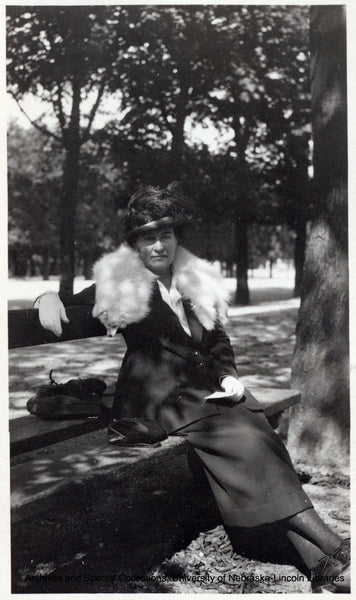
While Truman’s plagiarism of Willa’s words and ideas are evident, the cultural caper to expose Truman led by screenwriter George Axelrod and Audrey Hepburn is evident here also: These very images from Willa’s words were added to the screenplay making the quintessential opening scene of the movie that were not present in Truman’s novella. By doing this, George Axelrod was sticking it straight to Truman at the opening of the movie showing that he himself knew the original sources of Truman’s material and handing it back in more glory to Willa, taken from the very paragraphs where Truman had taken the girl, her situation, and the title. After Willa did not like the movies that were made of her novella A Lost Lady, Willa had stipulated that her works couldn’t be made into movies, and her executor and companion, Edith Lewis, was still alive in 1960 and would have forbidden it, and so going the route of openly crediting Willa wasn’t possible and still get the movie made. They knew it had the power to become a cultural phenomenon with Audrey and a way to take it back.
And so the caper begins.
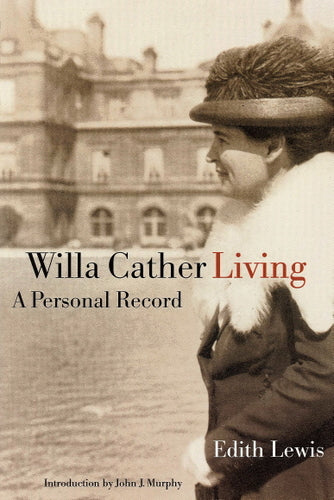
Audrey was in the lavender fields of the South of France (Audrey also ‘discovered’ there by the writer Collete and auspiciously where Willa would set her last novel which was never published for important reasons about what she was writing–what couldn’t be said) when the producer Marty Jurow and the writer of the screenplay of Breakfast at Tiffany's George Axelrod, came to her, as Sam Wasson, the author of Fifth Avenue, 5 A.M.: Audrey Hepburn, Breakfast at Tiffany’s, and the Dawn of the Modern Woman writes. Audrey was finally pregnant after a heart-breaking miscarriage on a movie set, and she was finally going to have the baby and homelife she desperately wanted. There is almost nothing that could have talked her into doing a movie at that moment. Only one thing that would change her mind at that crucial point and the moment she had been desperately wanting, to be a mother, and that was her sense that she could use her movie magic power to change things. That is her spirit. And so above what she wanted most she decided to make a movie that has not only blessed, inspired, and enlivened us for over six decades, with Audrey as alive as ever, but is also about to rock our worlds and completely change the way we see her in her vibrant audacity for which she never took credit and which outdoes fraud and betrayal every time.
The breakthrough, too, is that Willa Cather’s work unseen in this light, coming now into the light of the sun, is astounding in what she was doing, a female writer writing in the early 1900s and outdoing the men in what they wanted to most capture. When one realizes that she’s the other magic in Breakfast at Tiffany’s, the one who was writing the female characters that the likes of F. Scott Fitzgerald and William Faulker, and I personally believe Ernest Hemingway, were jealous of, her ability to communicate the essence of the feminine spirit in a way that had never been seen into and fulfilled, that she had something to say about female characters and culture and was breaking that open into the eternal art, makes what Audrey did of utmost importance. Cather was doing something epoch-shifting, shifting history. She was showing a far different birth and trajectory of the United States, and thus the world, based on the spirit and power of the feminine: a female who knew her roots were different from the cultural conditioning of society and how she could break open that structure. Audrey knew this and gave it a face and a personhood. She gave it the headline that would even come to us. She undid all of Truman’s stigmas, all of his claims, all of his lies, and broke open the magic, the magic that is her herself, the proof of Willa’s writing incarnate.
The way that we can be sure that Audrey was in on and active in taking on the fraud with her clout and charisma beyond even Breakfast at Tiffany’s is the way in which George Axelrod was handling the writing of the screenplays. This became more evident in Paris When It Sizzles, the story of a bullshit writer whom Audrey comes in to be a ‘typist’ and muse, and is actually constructing and inspiring the story herself–even the one writing and typing it at the typewriter to his “blank pages.” The male “writer” is just repeating what she says and adding himself in to make himself the star. By the time the ‘chase is on’ Axelrod’s screenplay announces, “What he doesn’t know is the girl is ours!” i.e. the girl, Audrey, is working on their side, the writers, the creators. And it’s true.

She’s the very spirit of the movie, even its humor, playing as if she knows nothing when she’s its very intellect and heart. The screenplay and Audrey are making fun of a player who doesn’t have a story but wants to have the role. The lead male, Richard Benson played by William Holden, is having the ‘borrowed’ female character just step into his room and he acts like he is writing her and that she knows nothing about writing (even though she does), while admitting that he’s a “thief and a liar.” While the screenplay is an adaptation of the 1952 French film Holiday for Henrietta by Julien Duvivier and Henri Jeanson, the inspiration of Axelrod’s screenplay is making clear fun of the plagiarism and fraud situation, even making it vampiric. Richard Benson announces, “Throw our inspector friend off the scent. Never in his wildest imagination would he think that the highly paid and successful Rick would be so foolish as to take a girl along with him on a job. Therefore that’s exactly what I’m going to do. She’s a perfect cover.” There are jokes about acting of the roles of villains, as when Tony Curtis goes into depths and emotions about how he’s pulled off his role using method acting. Audrey’s Gabriella leaves a note in lipstick for the inspector, the signature of Breakfast at Tiffany’s.

The crime caper moves into a movie studio. They even mention Breakfast at Tiffany’s amidst the crime story. Audrey completes the theft, the stealing of the very symbol of Paris, of culture, of light, and love, the Eiffel Tower, by being the bigger star and the spirit of creation, the one there to take back the world for the feminine, the female writer, and for transforming culture by its very symbols.
